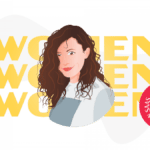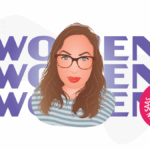Women in SaaS: Silvia from Slido

No matter how you slice it, there simply aren’t enough women choosing tech careers. Is the industry at fault? The culture? Or perhaps there’s a lack of success stories out there, ones that could help pave the way for young, bright-eyed women.
Because we’d like to shine a light on this issue, we’ve decided to regularly publish interviews with inspiring women working in the SaaS field. We’ll be asking them about their experiences as they entered the tech field, which resources helped them on the way, what advice they would give to their freshman selves and more.
The first inspirational woman is Silvia, from the thriving startup Slido. From battling imposter syndrome to how she does her part for gender equality, read on to learn her story.
Hi Silvia, can you please introduce yourself, your position and the company you are working for? How long have you held this position?
Hi! My name is Silvia Erdélyiová and I work at Slido.
I joined the company’s People Operations team in July 2018. I’ve been responsible for Talent Acquisition for two years now and am currently also helping with Internal Communication.
Slido is an easy to use Q&A and polling platform which helps people to get the most out of meetings and events by bridging the gap between speakers and their audiences.
From internal communications professionals to trainers, team leaders, conference organizers and individual presenters, Slido is used by anyone looking to enable open conversation at a live meeting, whether in-person or virtual.
Slido has been adopted by a number of renowned conferences—including SXSW, Web Summit and Money20/20—and has worked with high-profile clients like Spotify, Lufthansa, BBC and Oracle.
With a team of 150 people dedicated to creating the simplest product experience with great customer support, Slido’s vision is to transform how meetings and events are run around the world. Headquartered in Bratislava, Slovakia, Slido has offices in London, New York, San Francisco and Sydney.
What inspired or led you to enter the SaaS field/tech startup world?
I think I first realized I would love to work in this field when I was studying in Denmark, where I had a chance to meet some very inspiring people and to see the power of innovative technologies. I just fell in love with how technologies are improving our daily lives.
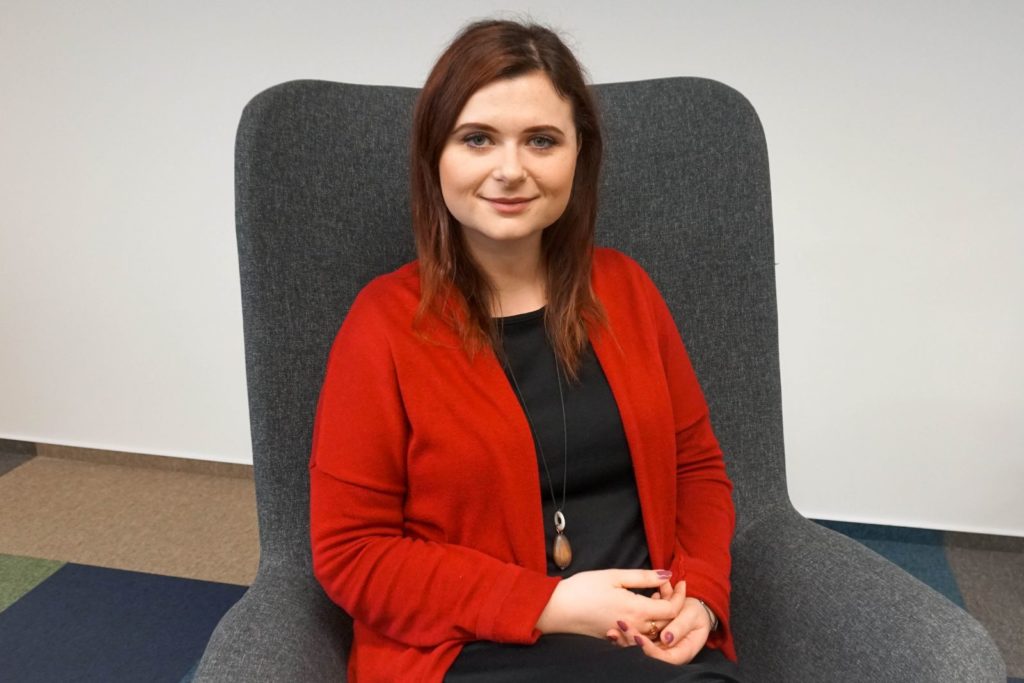
At the same time, I always found people to be the greatest foundation for a flourishing company, so I knew that I wanted to work in the HR field and to have an impact in that area.
While working at my first full-time job learning all about Talent Acquisition, I was following Slido for a couple of years, waiting for the perfect opportunity to arise. You know what they say: “Luck is when opportunity meets preparation.” That was my case. And maybe a bit of actual luck, too. 🙂
Did you study technology? Do you feel it’s important to have a tech education in order to get a job in a tech startup?
I studied Marketing Communication and afterwards moved on to Innovation and Entrepreneurship, so I had very few technical subjects at school. However, I was always curious, read a lot and kept educating myself in my free time, so I had an overview of the tech world. And of course, the passion for it.
In terms of needing a tech background, I don’t find education the number one thing on the requirements list. For example, here at Slido, we have great QA specialists who studied psychology, and I’ve heard that artists and musicians make great developers because they know how to transform a concept into reality.
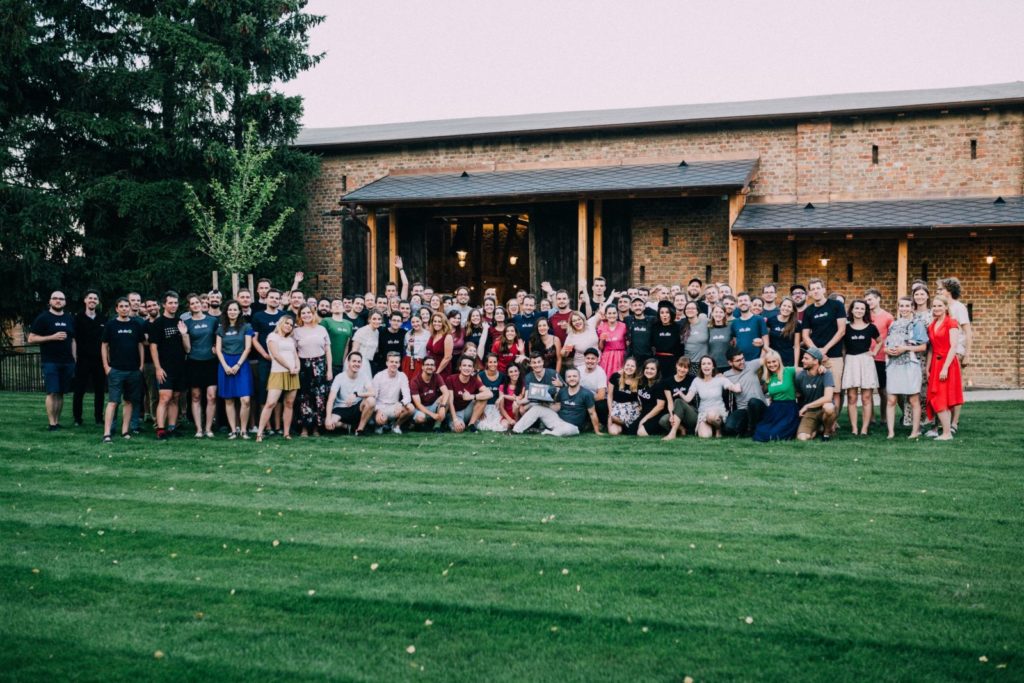
From the perspective of a Talent Acquisition Specialist, I think that while a tech education can build a very strong foundation for people in technical positions, a combination of potential, motivation and hard work is even more important.
We are lucky to live in times when you don’t need to go to school or a library to get access to information and study materials. A mobile device, internet connection and motivation is all we need.
What was the biggest challenge for you when entering the tech field and how did you manage to overcome it?
Tough one. During the first months, I was personally fighting with imposter syndrome (which I hadn’t even known existed). Being hired by a company that I’d admired for a long time and being surrounded by extremely inspiring people put a lot of pressure on me. Or, rather, I was putting the pressure on myself. 🙂
Getting to know the team more and realizing that even the greatest minds are just super nice and helpful people helped me to relax and truly enjoy myself.
And of course, seeing the results of my work; that was the best feedback in moments when I was doubting myself. 🙂
Thinking back to your journey and how you arrived at where you are today, is there anything you’d change?
My journey may not have been very linear, and it may have taken some exploring to find out where I want to be, but I see the time I spent on the crossroads as well worth it.
I would definitely work on my self-confidence, on not doubting and question myself all the time. However, I am sure I’m not alone in this. I think it’s quite a common challenge for women in the tech world.
Just take the fact that a man applies for a job even if he fits only 60% of the requirements, while women usually shoot for almost 100%.
What piece of advice would you give to your freshman self?
Enjoy life, take risks and don’t be afraid to ask for help or advice. 🙂
If I could do it all over again, I would use more of the opportunities I had during school. Courses and internships too, but mainly studying and working abroad. Those were the things that really opened my eyes and gave me a lot.
What sort of impact do you feel from working in a male-dominated industry/environment?
First, I have to say I love every moment of working in a field and on a product that can make a difference in people’s lives.
I stopped comparing myself with others and I focus on how unique we all are. I believe that I—and all women—are just as crucial as men at every company and on every team. We bring diversity and balance at the same time.
I also feel that it’s important to show the younger generation that the tech field needs women, too!
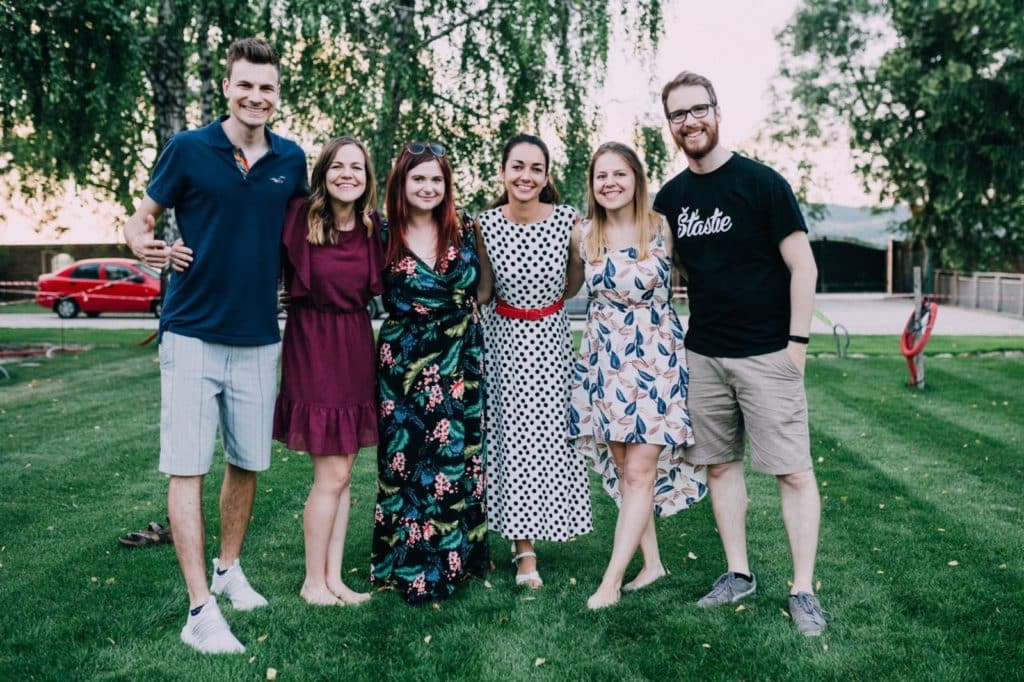
Have you come across any hurdles that stem from gender inequality? Were you able to overcome them?
Men are often naturally better at selling themselves, promoting their results and asking for a promotion. It’s the responsibility of leadership and HR teams to not reward on the basis “who speaks up the loudest”, but to base decisions on skills, motivation and performance.
Fortunately, I’ve personally never faced any challenges related to gender inequality. I was always lucky enough to work at great companies, with fair people.
And as someone who works in recruitment, I can confidently say that we always look for the best person for the job, no matter the gender.
Only 3% of females say a career in technology is their first choice. Why do you believe working in a tech startup or SaaS is a good career path?
Some women think that a career in technology means coding or having some other technical responsibilities, so they often get scared off before they even try. The truth is, there are sooo many options for all kinds of profiles!
It’s not just about technical skills. Creativity, communication skills, problem-solving, analytical thinking, organization… You name it. A tech company—or any company, for that matter—can’t grow and prosper without people with all of these competencies.
However, saying that it’s always a good career path would be a bit of a generalization. It’s more than great, but I definitely wouldn’t recommend it to everyone. It’s a high-paced and dynamic world, which offers a lot of space for self-improvement and staying in touch with innovations, but it keeps you on your toes all the time, too.
Do you see a lack of female presence at your startup? If so, how do you think this could be changed?
At the moment, the gender split at Slido is approximately 55% men vs. 45% women. It’s not a very dramatic gap, but where I do sense a big need to bring in more talented women is on our development and product teams. There are still teams where we don’t have any, or just one or two women.
Easier said than done. There is a notable lack of women in the tech sphere, and the cause goes as far as raising and educating children. I believe that’s where we should start.
What do you see as the added value of having more female teammates at a tech company?
Having a balanced representation of both genders is (just) one of the things that lead to a diverse workplace.
It’s hard to say if our brains are really wired differently, or if we have history and society to “blame” for how different we are.
If you’ve ever worked on a one-gender team, you’ve certainly felt the lack of the other gender. As much as we can and should be equal, we are also different. In the way, we behave, in the way we think and, generally, in the way we are. And those differences should be embraced.
How can male teammates support their female colleagues in growing professionally? And do you have any first-hand experience with this positive behaviour?
Ideally, there shouldn’t be any differences and we should be all helping out each other grow, no matter the gender. 🙂
If working with a woman who is new to the field, the best a male colleague can do is to mentor her and to be patient and understanding. Rather than telling her what she is doing wrong, it’s better to be encouraging—thereby helping her to get better and better.
That’s basically what I’ve experienced at Slido. Our team is amazing and I couldn’t be more grateful for how helpful my colleagues are. There were many times when I got lost in some technical questions and tasks, but they have always offered their help and advice, without judgement or rolling eyes. 🙂

What would you recommend to women who would like to enter the tech field?
I think my key advice would be to dream big and plan small in order to achieve that dream. Many women are very hard on themselves and expect immediate results, getting discouraged after a couple of failed attempts.
It takes a lot of hard work and dedication, but once you look back, you’ll see how far you’ve come!
As for women that inspire you, which stand out most and can you recommend some of their work?
Of the countless inspiring women, I’d highlight Sheryl Sandberg—COO of Facebook and author of the book Lean In, which I highly recommend. I am also a big fan of Patty McCord, former Chief Talent Officer at Netflix. She wrote the book Powerful, which focuses on HR and company culture. For all women, I can highly recommend Michelle Obama‘s inspiring memoir, Becoming. Another great book—one that will show you the power of passion and perseverance—is Grit by Angela Duckworth.
If you are looking for a book to take with you on vacation, Disrupted by Dan Lyons will definitely put a smile on your face, with all its detailed absurd situations in the startup tech world. And on my to-read list is Brotopia by Emily Chang.
I prefer reading, but a great podcast I can recommend is How I Built This—you can check out some podcasts with inspiring women founders. A group of my female colleagues from Slido have also started their own podcast, Na čaji, where they speak to inspiring women from Slovakia (it’s only in Slovak).
From organizations to follow, there are many to choose from. I would highlight Girls Who Code, Girls in Tech and Women in Tech.
I’m also excited that we have these kinds of initiatives in Slovakia. I am a huge fan of “Mini Tech MBA” and “Aj ty v IT”.
In terms of online courses, my personal favourite is Udemy, and I love to browse articles on Medium.
There are so many great resources available on the Internet that a decision paralysis is almost inevitable. 🙂
People working in startups are usually very busy. How do you manage your work-life balance? Do you find time for passion projects?
I have to admit, switching off can be a real challenge—mostly because I really enjoy my work. 🙂 That’s why I make sure to take a vacation once or twice a year, to really fully recharge. I also quit my habit of working on the weekends whenever I had time.
I am a planning freak, so I’ve learned to put everything in my calendar. This way, I make sure I have some dedicated time for sports, friends and family—and I don’t forget any plans. Maybe not the best approach, but it works for me perfectly.
I dedicate a big part of my free time to learning (be it books, blogs or webinars), and if possible, I try to give back by supporting some local initiatives and organizations. I also love attending meetups for some networking.
Women in SaaS initiative
Did you know, that only 3% of females say a career in technology is their first choice and only 5% of leadership positions in the technology are held by a woman? With our new initiative – Women in SaaS interviews, we want to inspire more women to join SaaS field & technology and combat prejudges connected to technology.
Every two weeks, you can look forward to interviews with inspirational ladies who decided on a career path in SaaS. In our next article, we will talk to Tereza Macháčková, Head of Talent from successful SaaS startup productboard.














